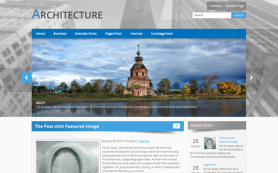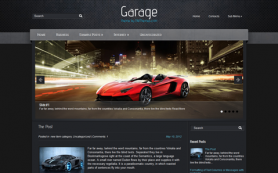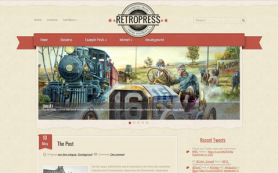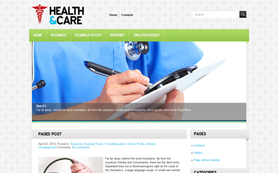From bloggers to corporations, WordPress is one of the most popular websites-creating platforms on the market. Whatever field you’re in, you’ve probably put a lot of thought and effort in developing your site to perfection and this is why maintaining and organizing your website is incredibly important. In this article, we’ll introduce ten handy tips that will help make your site more organized and maintain its functionality.
1- Keep Your Website Updated
Regularly updating your website is one of the most effective ways to maintain your site; log in to your WordPress site on a monthly basis and check for new updates for your core WordPress, themes, and plugins. WordPress gurus from ThriveWP, advise that for you to keep your database clean and optimized, you should delete any unnecessary plugins and invaluable or irrelevant posts when updating your website. Not only will this help you ensure that your website is running smoothly, but it’ll also prevent hackers from infiltrating your website.
2- Regularly Backup Your Website
Although backing your site up doesn’t keep your site fresh and organized, it’s vital in case something goes wrong and you want to revert back to a previous version. Regular backups are incredibly important for all kinds of sites, especially for corporate ones, it can mean averting disaster and loss of crucial data. Luckily, WordPress offers some great plugins that will automatically backup your entire site and store your site back up to a cloud service of your choice.
3- Optimize Your Database
A website’s database is where all the content is stored, including settings, videos, pages, images, content, and more. As your website grows, a lot of redundant data gathers in your database which consequently slows your website down and negatively impacts its overall performance.
To fix this, you’ll need to clean and optimize your database from time to time. You can use the free plugin that WordPress offers to automatically optimize your database and clear invaluable data, unwanted draft posts, and spam comments. This will greatly enhance your site’s speed and performance.
4- Track Your Website’s Speed
Most visitors won’t wait for a slow-loading page which means that the speed of your site can directly affect your search engine rankings and traffic rates. In fact, search engines often prioritize the fastest websites on the first search results page which makes tracking your website’s speed a vital part of your website maintenance. With just a few clicks, you can easily install one of the many tools or applications available to accurately measure your site’s loading time and gain insights on how to improve it.
5- Focus On Your Website’s Security
The security of your website is one of the most crucial factors that you need to consider when it comes to WordPress website maintenance. Install a reliable security plugin to regularly scan your site for potential risks and secure your site from hackers and other security threats. A good plugin will also protect your site by removing any viruses or malware immediately before they can create havoc.
6- Use Categories and Tags Properly
When it comes to site navigation, categories and tags are crucial for both visitors and search engines alike. One of the easiest strategies for organizing your WordPress website is by using the built-in categories and tag system. Once your system is up, your content will be logically structured and your visitors will be happy.
To make sure you’re using your categories and tags effectively, use descriptive names for them to make it easier for your visitors to find the content they want. Try to limit your posts to one category each to avoid confusion, but when it comes to tags, you can use a variety of them in your posts because they make your pages easily accessible and can work as a guide that communicates the topic in question to your readers and search engines alike.
7- Simplify Your Menu
Organizing how your visitors will find your content is equally as important as structuring the content. Take a look at your menu and make sure that it’s simple, clear, and user-friendly to ensure that your visitors can easily navigate your site. Use clear, inclusive names such as home, blog, and contact instead of including every page on its own in your menu, this way your visitors wouldn’t have to spend a long time figuring out how your site works which makes them more engaged.
8- Clear Up Broken Links
There’s nothing more annoying for a visitor than clicking on a link to find themselves facing a 404 error. This creates a bad user experience which, in turn, can lower your search engine rankings so you’ll need to periodically scan your website for broken links and fix them with new redirects. You can easily do that using one of the many plugins available. It goes without saying that the incorporated links have to be relevant to the content they’re included in, so make sure that your links fit naturally.
9- Link Your Posts Together
Internal links within posts are a great way to keep your website active and organized which means that it might be time for you through your old posts and link them to newer ones and vice versa. You see, linking relevant posts on your website together can help your visitors navigate, keep them interested, and help search engines read your website.
10- Use Breadcrumb Navigation
If your site has several sub-categories and pages, you should consider implementing breadcrumbs for easier navigation and a better user experience. Breadcrumb navigation is a secondary navigation system that’s provided by several plugins, it’s a useful tool that tells users where they are on a website in relation to the homepage. It also helps the search engines understand the hierarchy of links on your web page which consequently increases your search engine rankings.
Keeping your website properly maintained and organized can be a tedious task, but it’s a crucial one that’ll significantly affect your user experience. The above tips will come in handy and help you leave a good impression on your visitors, so what are you waiting for? Get organized and get ready to increase your traffic and improve your search engine rankings.
 Members Area
Members Area




